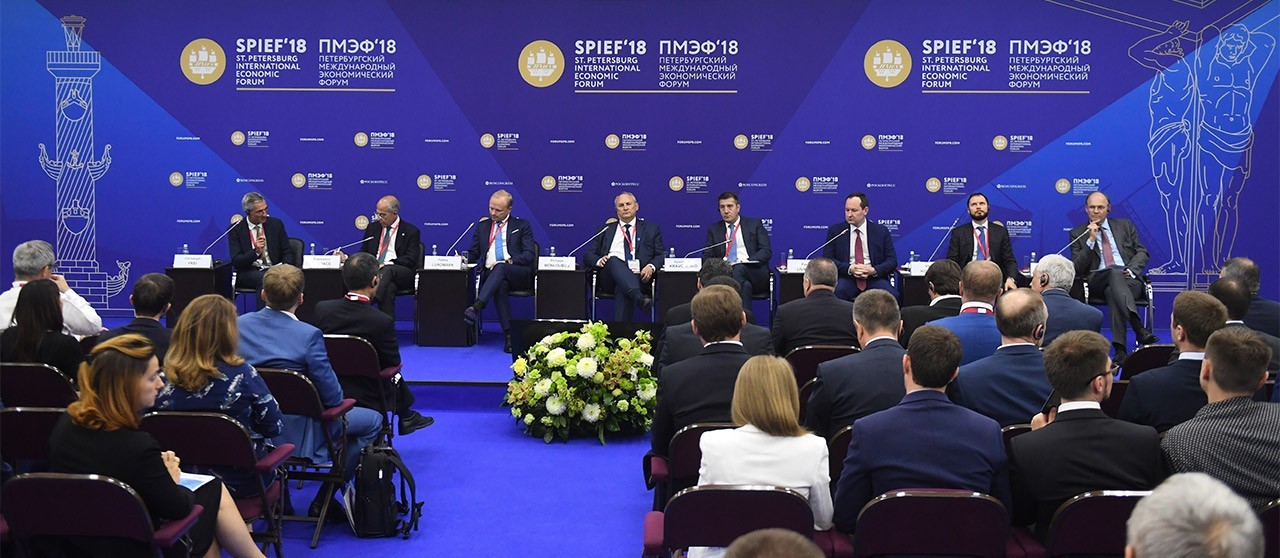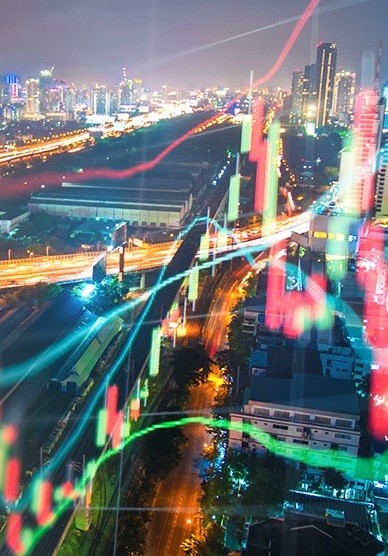Digitalisation is no longer a choice, it is a necessity. All that remains is to decide how rapidly it can penetrate the wider economy. This was the message that came loud and clear from the Saint Petersburg International Economic Forum (SPIEF), which is a globally significant event for the economy and geopolitics.
The 2018 edition, which was held from 24 to 26 May, saw the participation of a number of important figures, including Russia’s President Putin, French President Emmanuel Macron, Japan’s Prime Minister Shinzo Abe and Vice-President Wang Qishan of China. Sharing the stage with Christine Lagarde, Managing Director of the IMF, was a panel representing almost a quarter of the world’s population and a third of its GDP.
In his role as host, Russian President Vladimir Putin declared that digital development is a priority for his country. He went on to say that digitalisation, along with other technological innovations, can contribute to harmonious development in the nations present and throughout the entire world. If the economy is now globalised, then technological advances like digitalisation are even more so.
Digital Energy
Digitalisation involves all aspects of the economy and industry, especially energy. Energy is a crucial sector for Russia, and it was the subject of several in-depth discussions during the three days of the Saint Petersburg event.
The convergence of these two important themes was the focus of a round table entitled “Digitalisation and Future Energy Systems.” Discussion also included a contribution from Enel CEO Francesco Starace. Moderator Christoph Frei, Secretary General and CEO of the World Energy Council, said in his introduction that digitalisation is one of the three key elements driving change in the energy sector, together with decarbonisation and decentralisation. All three are equally fundamental, and all are interconnected.
All the participants recognised the numerous advantages digitalisation in energy offers for clients and operators – efficiency, higher-quality service, financial savings, a reduction in commercial losses and electricity theft and a new, active role for clients.
On the basis of Enel’s ground-breaking work promoting smart meters, Starace also described the order in which these benefits appear – especially the financial advantages generated by integrating meter-reading with the billing process, followed by a reduction in technical and non-technical losses and then an improvement in calculating the energy balance and network resilience, which is one of the most promising aspects.
Once the grid has been digitalised it proves to be flexible and capable of delivering services it was not originally designed for – the integration, for example, of renewable sources and changes in grid management, no longer run only from the top down, from supplier to user, but also from the bottom up, and horizontally, too. Finally, second-generation smart meters feature more functions, like the ability to regulate energy consumption according to electricity prices in real time.
Enel’s experience, providing a model
Starace then summed up our Group’s history in this sector. In Italy, digitalisation was completed 15 years ago, and returns on investment began to flow only three years later. We have just completed a similar process in Spain and we are already considering the next stage, starting with Romania and Chile.
Experience has taught us that this is a relatively economical operation, with problems posed only at the start, a result of uncertainty on the part of regulatory bodies. Once the project has been launched, all that is required is the will to carry it forward with rigour and discipline, bearing two requirements in mind – the need to update infrastructure data (saving that data in the Cloud) and modifying back office processes to manage huge quantities of information.
Pavel Livinsky, Director General of Rosseti, which operates energy networks in Russia, held up Enel as a model for all to follow. He then went on to say that Enel’s experience has encouraged him to take an optimistic view of the future of electricity network digitalisation. As well as being a recognition of our historic and technological merits, it also confirms that digitalisation no longer has any frontiers, as it is now an entirely global phenomenon.
New agreement for Enel in Russia
Our participation at the Saint Petersburg conference was also an opportunity for our CEO to sign a partnership agreement between Enel and the Russian railway company RZhD for the joint development of innovative storage systems to be installed along the country’s railway network.
The objective for the Russian railways is to stabilise the electricity network, improve train management and avoid costly restructuring. For Enel the agreement is both a way of developing new energy storage technology (an increasingly crucial factor in networks management) and of consolidating our presence in Russia, where we are restructuring our activities, targeting innovative energy services and a transition towards renewables. Bringing our innovations to the world’s most important markets is part of our commitment to promoting technological globalisation.





